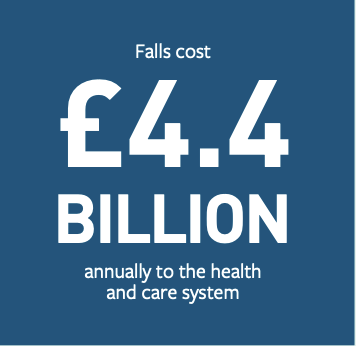Falls among older adults remain a major public health challenge in the UK. Around one-third of people aged 65 and over experience a fall each year, often leading to serious injury, reduced independence, and increased health and social care costs. In some cases, falls can even result in long-term disability or premature death.

While evidence shows that community-based falls prevention programmes can significantly reduce the risk of falling, the implementation of these programmes across England is inconsistent and fragmented.
A new policy brief – Strengthening Community-Based Falls Prevention in England – sets out clear recommendations to improve the commissioning, delivery and public understanding of effective falls prevention. It is aimed at policymakers, commissioners, and community leaders, and highlights the urgent need to scale proven interventions and support the health and care workforce to deliver them sustainably.
“Exercise can reduce falls by 23% and a comprehensive assessment and action plan can reduce falls in care homes by 43%”
The policy briefing is the result of a major collaborative effort, made possible by four NIHR Applied Research Collaborations (ARCs): Wessex, South West Peninsula, East Midlands, and Greater Manchester. Researchers from the Universities of Southampton, Exeter, Nottingham, and Manchester contributed to the work, alongside Health Innovation Wessex, patient and public contributors, and the Public Policy unit at the University of Southampton.
This work is a call to action to ensure older people across England have equitable access to effective, evidence-based falls prevention programmes in their communities.
